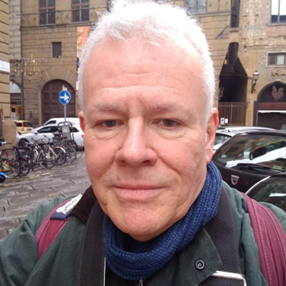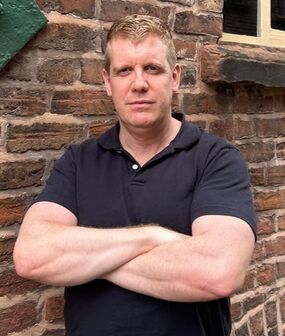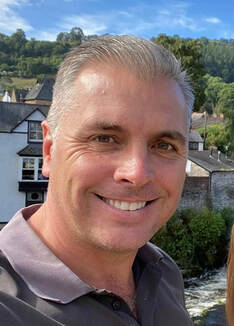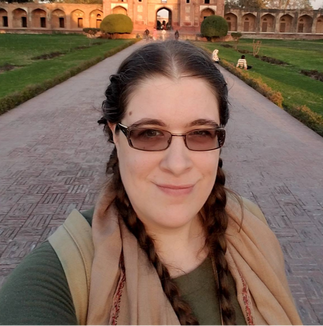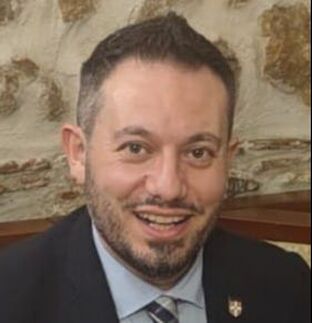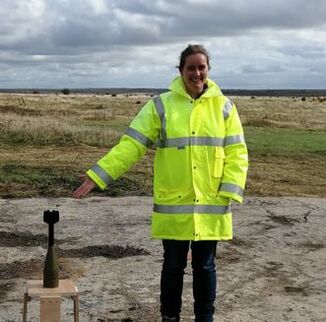Conflict & Military Activity
The WG brings together civilian heritage management professionals and military experience to bridge the gap between the culture and defence sectors. It is committed to supporting and encouraging the UK Government regarding its accountability to fully implement the 1954 Hague Convention for the Protection of Cultural Property in the Event of Armed Conflicts and its two Protocols (ratified 2017) in civilian and military activities.
Members of the Working Group are available to consult with individuals, heritage professionals, armed forces, and UK government representatives in the protection of cultural property in the event of conflict, and are experienced in providing training to armed forces.
For more on our work, which includes training, policy, and lobbying, see the BS UK News, or the Threats to Heritage.
Members of the Working Group are available to consult with individuals, heritage professionals, armed forces, and UK government representatives in the protection of cultural property in the event of conflict, and are experienced in providing training to armed forces.
For more on our work, which includes training, policy, and lobbying, see the BS UK News, or the Threats to Heritage.
MEMBERS
Chair - Emma CunliFFEBio
Dr Emma Cunliffe is a Senior Research Associate within the UNESCO Chair in Cultural Property Protection and Peace at Newcastle University, and a member of the Secretariat of Blue Shield International. She is a Fellow of the Newcastle University Policy Academy, and a Fellow of the Society of Antiquaries. Emma has been actively involved with BSUK since its (re)founding in 2012. She served as Secretary for much of that time until stepping down in 2023, staying on as a Member. She has over a decade of experience in researching heritage protection and destruction and international law, particularly the 1954 Hague Convention for the Protection of Cultural Property in the Event of Armed Conflict, lobbying for ratification and better implementation of international law and carrying out projects with partners on the ground. She carries out military training in CPP around the world. In the UK, she has been an active contributor to policy and lobbying regarding UK implementation of the 1954 Hague Convention, and to military training. |
Katrina ThomsonBio
Katrina Thomson is a senior manager with the National Trust for England, Wales and Northern Ireland, specialising in cultural heritage curatorship and conservation management. The National Trust is Europe’s largest conservation charity, and the world’s largest single-holder of historic houses open to the public. Katrina has over 25 years’ applied experience in heritage protection and interpretation across an extensive range of historic sites. Based in the Trust’s SW region, her current portfolio embraces some of the most significant mansion estates in Trust care, as well as the World Heritage properties of Stonehenge, Avebury and Associated Sites in Wiltshire, and the Cornwall and West Devon Mining Landscape. Previous roles include Head of Collections, Libraries and Archives, and Deputy Head Curator for the National Trust for Scotland, and Curator of Prints and Drawings at the Scottish National Gallery in Edinburgh. She has worked on multiple capital projects and exhibitions, including the award-winning conservation and reinterpretation of the iconic battlefield of Culloden, near Inverness. Katrina is a Fellow of the UK Clore Leadership Programme and has held voluntary positions on the Scottish Committee of the National Lottery Heritage Fund, with the international NGO Cultural Heritage without Borders (Albania), and the British Army’s Cultural Property Protection Unit. |
Rob BevanBio
Robert Bevan is an author and journalist writing on architecture, heritage and cities as well as a heritage consultant. He is the author of Monumental Lies: Culture Wars and the Truth about the Past (Verso), a book of the year for the Financial Times and the Art Newspaper. His previous book, The Destruction of Memory: Architecture at War was described as “ground-breaking” by the New York Review of Books. His work has been translated into several languages. Robert is the architecture critic for the Evening Standard in London and has written for newspapers, architecture and arts magazines internationally. He is also a heritage consultant with qualifications in architecture, planning and urban design. He specialises in area-based, heritage-led regeneration and heritage at risk and has been described as “one of the most compelling progressive voices in the heritage world” (Tribune). He is a member of the Mayor of London’s Commission on Diversity in the Public Realm and of ICORP, the expert committee of ICOMOS on risk preparedness. |
Nigel PollardBio
Nigel Pollard is an academic whose research focuses on treatment and perceptions of cultural heritage in the Second World War and the application of that historical experience to contemporary and future conflicts. Nigel has been a member of UK Blue Shield since 2012 Nigel is a professor in the Department of History, Heritage and Classics at Swansea University in Wales. He trained as an archaeologist, undertook fieldwork in Italy, Tunisia, Syria, Egypt and the UK and published on Roman Italy, Africa and the eastern frontier of the Roman empire. Since 2011 his main area of research has been the treatment of cultural heritage in the Second World War, especially Italy, and his monograph Bombing Pompeii: World Heritage and Military Necessity was published by The University of Michigan Press in 2020. He is a Fellow of the Society of Antiquaries of London. He was a member of the UK military Cultural Property Protection Working Group from 2015 to 2019, and subsequently contributed to the training of the UK military Cultural property Protection Unit. He participated in the consultation on the UK Cultural Property (Armed Conflicts) Act 2017. |
Tom PinfoldBIO
Tom Pinfold is a serving Royal Navy officer specialising in strategic communications. He is part of the Royal Navy's Human Security cadre and the lead for Cultural Property Protection. Tom read Archaeology at UCL (1998-2001), before working as a rare books archivist, and a field archaeologist in the UK. He also appeared in two hit BBC history programmes as an experimental archaeologist and TV presenter, before becoming a Royal Navy officer working in the UK and overseas. He has extensively volunteered in the military museum sector in London and Chester, the conservation department of the Society of Antiquaries in London, and been with Blue Shield UK since 2019. He has Masters Degrees in Terrorism, Security and Society from KCL (2010), and Military History from the University of Chester (2012), and a PhD in Art and Antiquities Crime focused on the Mediterranean region, from Staffordshire University. |
David RobertsBio
David Roberts has always had an interest within the fields of architecture including its significance and development during different phases of history that provides a rich heritage around the world. Currently runs an architectural practice in Somerset dealing with traditional and historic buildings. This has resulted in his interest with Blue Shield UK being also from a military background. Dave is a member of SPAB and the Traditional Architecture Group within RIBA. Involved in architecture since 1987. Further studies continued at the University of Cambridge in Historic Building Conservation, and the University of Oxford in Architectural History, Condition Surveys of Historic Buildings, and Heritage Values and the Assessment of Significance. At present, further Postgraduate courses are being carried out at Oxford in Architectural History. Including architecture, Dave has served in the Royal Navy both full time and part time operating in sea, air, and land environments within the Commando Helicopter Force from 1989 to current where he is now a reservist. Operated in Northern Norway, North Atlantic, Mediterranean, Caribbean, Balkans during the 1990s, and the deserts of Iraq, Afghanistan, and Jordan |
Brittni BradfordBio
Brittni Bradford is currently a PhD researcher in cultural property protection at Newcastle University (Department of Media, Culture, and Heritage) with an MA in Museum and Artefacts Studies from Durham University and a BA in Anthropology (Archaeology) from the University of South Florida. Her background includes experience in museum collections management and related emergency planning in Florida (USA) and additional experience performing remote and field archaeological assessment(s), having worked with organisations such as Saving Antiquities For Everyone (SAFE) and the Florida Public Archaeology Network (FPAN). Her expertise include the use of digital geospatial (GIS) mapping for heritage protection, such as: proactive domestic implementation of the 1954 Hague Convention & Protocols, emergency planning/preparation, and risk or damage assessment related to armed conflict and climate change scenarios. She is currently an active Member of the Emergency Planning & Response, Armed Conflict, and Climate Change working groups. |
Antonio AsproneBio
Antonio Asprone is an archaeologist, he has gained over twenty years of experience in the Mediterranean and European context, between Italy and the United Kingdom. Senior archaeologist at the University of Cambridge and UK Government archaeological officer. Consultant for Ministries and local authorities, public and private bodies, expert in impact assessments, advice, planning, management of cultural heritage in emergencies and conflicts, in response to crises and illicit trafficking. Lecturer in Archeology & Heritage at School of Higher Education in Judicial Archeology and Crimes against Cultural Heritage. President of the Italian Society for the Protection of Cultural Heritage (SIPBC Salerno). Cultural Manager National Trust for Italy (FAI). Researcher at Maniscalco Center Heritage at Risk, in charge of Archaeology and Cultural Property Protection in Crisis Response. Specialist in classics, roman, urban, landscape, christian, rescue and community archaeology. Expert in complex stratigraphies, data analysis, planning, conservation, management of cultural heritage, museums, monuments and archaeological sites. He has conducted archaeological research and excavations in the heart of Ancient Rome and has dealt with archaeological work and protection of the cultural heritage in relation to the post-seismic reconstruction in Central Italy. Relying on more than 20 years of international experience he is professional in all-round cultural heritage: curator, conservator, consultant and manager of museums, collections, exhibitions, conferences, projects, archaeological parks and UNESCO sites. Keen advocates of equality, diversity and inclusion. |
Lisa MolBio
Professory of Geomorphology and Heritage in Conflict UWE Bristol Academic with expertise in damage to build heritage in conflict zones. I currently work at UWE Bristol in the School of Architecture and Environment, where I lead the research portfolio of Heritage in the Crossfire as well as deliver a range of teaching in physical geography. I supervise PhD students and postdoctoral researchers in the investigation of ballistic and explosive damage to stone surfaces. My research group uses a combination of laboratory simulation studies, field investigations and remote collaborations to support initiatives and colleagues in conflict zones. We assist in the documentation, quantification, analysis and remediation of damage to built heritage, as well as provide training for armed forces and museum staff. Together with our partners we are supporting initiatives in Yemen, Libya, Tunisia, and Ukraine. Outside of direct impact of conflict I work on the long-term impact of climate change on fragile heritage, and its effect on sustainable conservation practices. |
Joanne dingwall mccaffertyBio
International Cultural Heritage Protection Programme Officer Department for Culture Media and Sport, UK Government Joanne is a cultural heritage protection, research and policy professional with experience in the delivery of large programmes that have supported cultural heritage preservation in ODA-eligible countries experiencing armed conflict and severe climate change. Joanne has played a particularly active role in promoting compliance with the 1954 Hague Convention via her publications and role as a UK Government Official. Recently, her work as International Cultural Heritage Protection Programme Officer at DCMS has afforded her the opportunity to represent the UK Government at the Regular Meetings of the States Parties to the 1954 Hague Convention, and other similar international meetings. In 2022, Joanne was awarded her PhD, which addressed the role of UNESCO in the protection of cultural heritage during armed conflict in Yemen, Syria and Iraq, from the University of Copenhagen. She has worked with various heritage institutions, such as the Smithsonian Provenance Research Initiative, delivered various international courses/workshops on heritage protection during conflict alongside the National Museum of Denmark, and has assumed the role of academic advisor at meetings with NATO HQ, the Romanian National Commission for UNESCO, and the Nordic UNESCO Delegations. Joanne’s most recent publication is a book titled ‘UNESCO, Cultural Heritage and Conflict in Yemen, Syria and Iraq’ with Springer Law. |
Elena Perez-Alvaro |
Maria Blyzinsky |
|
Bio
Dr Elena Perez-Alvaro is a Lecturer at the Master of Cultural and Natural Heritage Management at UNIR University, Spain, and a Research Associate at Nelson Mandela University, South Africa. She is also an Expert Member of the ICOMOS International Committee on the Underwater Cultural Heritage, Expert Member of the ICOMOS International Committee on Intangible Cultural Heritage, and part of the ICOMOS Sustainable Development Goals Working Group. She is also Chair of the Underwater Heritage Working Group of UK Blue Shield. Her main research is a holistic multidisciplinary study creating links between aspects of heritage, identity, and society, the past, and the future. She is the author of several articles in specialised journals and books in diverse fields. She has also published with Routledge the monography Underwater Cultural Heritage: Ethical Concepts and Practical Challenges. |
Bio
Maria is a trustee of ICOM UK (the UK branch of the International Council of Museums) with responsibility for liaison with UK Blue Shield. As such, she sits on the UKBS committee as a member of the Conflict working group. She has a longstanding interest in the protection of culture under threat, having been an advisor to Heritage Without Borders where she trained museum professionals to work in post-conflict zones. As an Anglo-Ukrainian, she is involved with numerous initiatives to support cultural heritage colleagues in Ukraine and regularly collaborates with ICOM Ukraine and the Ukrainian Institute. In 2022, she organised Heritage in Crisis - a series of online talks for ICOM UK that are now available on YouTube - and took part in a panel discussion on decolonising art, organised by the Ukrainian Pavilion at the 59th Venice Biennale. Maria is a London-based heritage consultant, independent curator and writer. In 2008, she co-founded The Exhibitions Team, an association of museum professionals specialising in exhibitions, collections and interpretation. Prior to that, she worked for the V&A and Royal Museums Greenwich, where she is now Curator Emeritus for the Royal Observatory. She is an alumna of the University of East Anglia’s Museum Leadership Programme, a former trustee of the National Jazz Archive, and served on the Museum Association’s Professional Development Committee. She is currently researching a book on generating ideas for exhibitions. |
vacant
|



